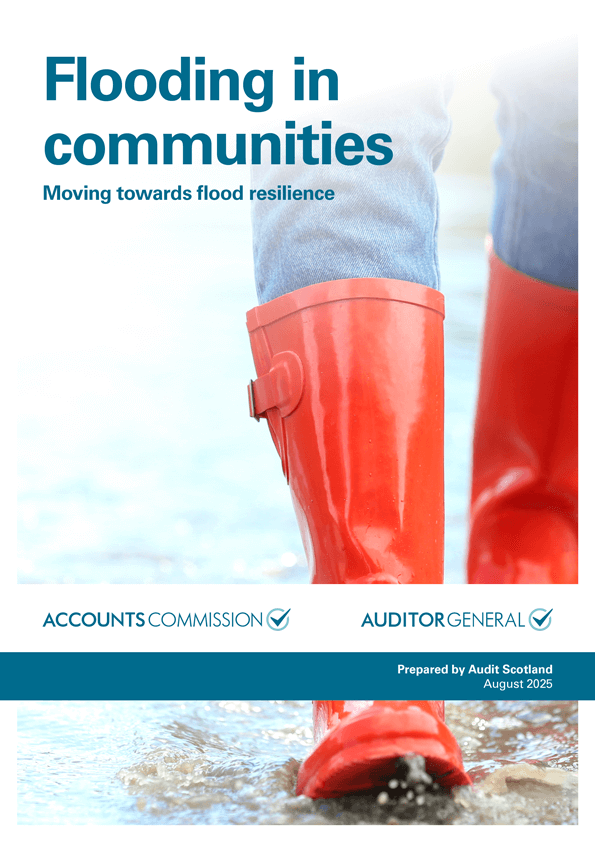Publication: Flooding in communities: Moving towards flood resilience
by Auditor General, Accounts Commission
Flooding is getting worse because of changes to our climate. It’s likely flooding will happen more often.
Around 284,000 properties are at risk of flooding in Scotland. This is expected to rise to almost 400,000 by 2080.
The Scottish Government and councils want communities and individuals to be better protected and prepared for flooding.
This means communities can recover more quickly when flooding happens.
There is a shift in focus from managing the risks of flooding to building broader resilience. The Scottish Government set this out in its 2024 National Flood Resilience Strategy.
Impacts of flooding in communities
All these impacts can have a wider impact on physical and mental health and wellbeing and widen health inequalities:
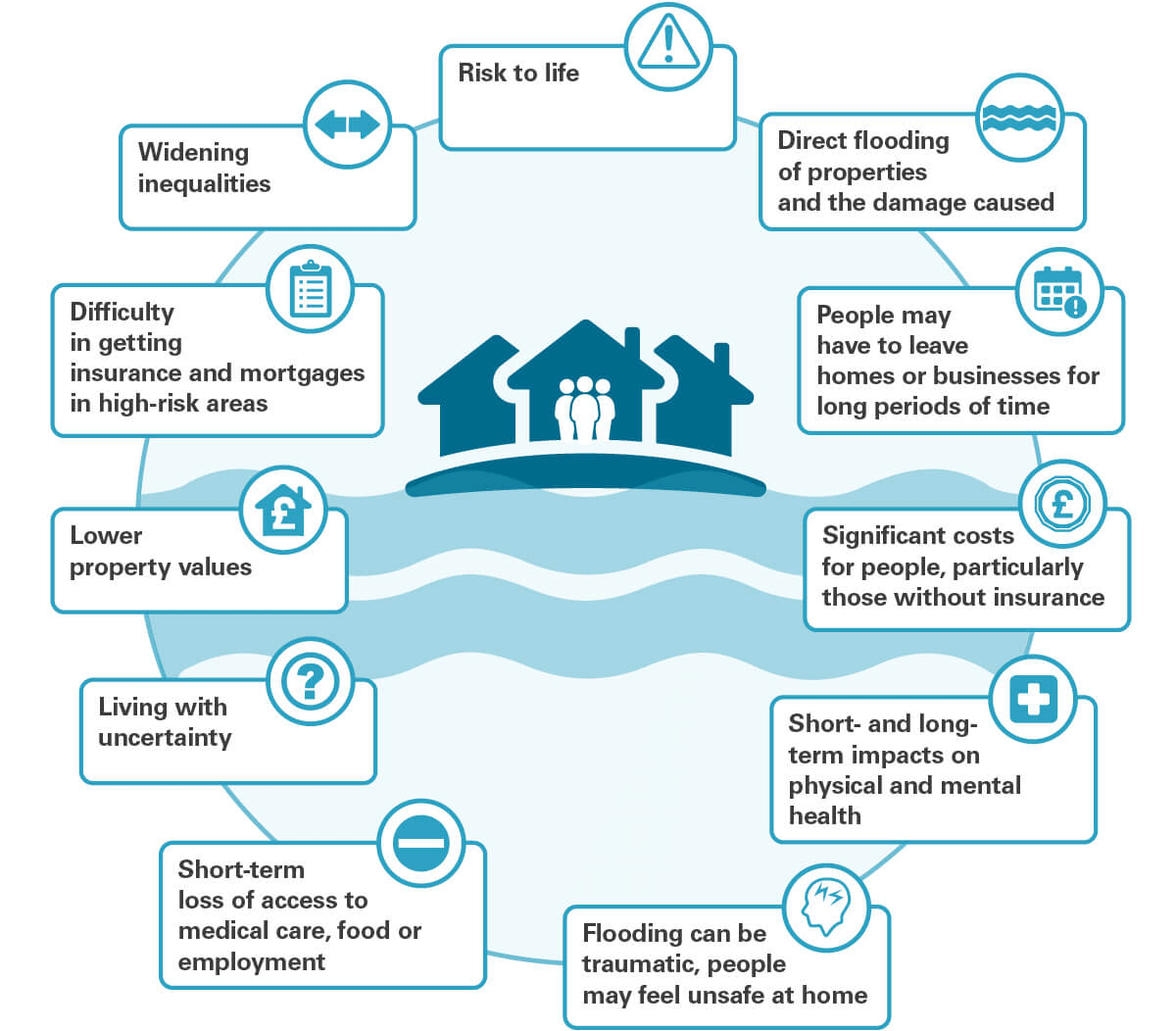
Source: Audit Scotland with information from Public Health Scotland and Scottish Flood Forum
- Risk to life
- Direct flooding of properties and the damage caused
- People may have to leave homes or businesses for long periods of time
- Significant costs for people, particularly those without insurance
- Short- and long-term impacts on physical and mental health
- Flooding can be traumatic, people may feel unsafe at home
- Short-term loss of access to medical care, food or employment
- Living with uncertainty
- Lower property values
- Difficulty in getting insurance and mortgages in high-risk areas
- Widening inequalities
About our report
We looked at how well the Scottish Government, councils, the wider public sector and their partners are working together - and with local communities - to tackle flooding in communities.
We reported on the plans and funding in place to manage flooding and assessed how well public bodies are working together, and with communities, to protect people from flooding where possible and help them prepare and recover. This includes building major flood schemes.
What we found
- There are good examples of public bodies and councils working well with each other and with communities to tackle flooding
- There are gaps in leadership, data, resources, skills and capacity
- The funding mechanism for major flood schemes is not fit for purpose. Costs are increasing with fewer homes than planned to be protected
- There is great uncertainty for the funding of future flooding schemes
- Better leadership and specific actions are needed to deliver the Scottish Government’s National Flood Resilience Strategy
- More needs to be done to tackle issues that can make flooding worse (such as how land is used) and increase initiatives that can minimise flooding
- Greater awareness of the risks of flooding and the action communities can take to be better prepared.
We are really concerned that the action needed will not happen at the scale and speed required.
There are risks that inequalities will increase unless more targeted action is taken.
What needs to happen now
To help ensure communities and people are better protected from flooding, and help communities be better prepared some important issues need to be fixed.
This includes:
- Making sure people, communities, councils and other public sector bodies have all the information they need, with clear roles and responsibilities.
- Setting out clear timelines for the delivery of actions to support the National Flood Resilience Strategy.
- Reviewing how flooding services are delivered by councils and the Scottish Government to ensure this is effective and efficient.
- The Scottish Government providing clarity and certainty about how much funding is available for major flood schemes.
- Making sure there are enough people with the right skills and experience to support councils to tackle flooding.
Unless this happens, it will be increasingly difficult to protect ourselves and prepare effectively for increased flooding and quickly recover.
- File type:
- File size:
- 7.95 MB
All files
- Supplement: Case studies
- File type:
- File size:
- 228.59 KB
- Easy read summary
- File type:
- File size:
- 829.87 KB
- News release
- File type:
- File size:
- 129.89 KB
Images
-
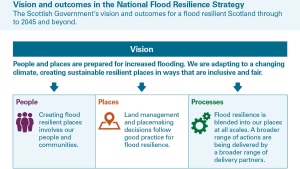
Exhibit 1 -
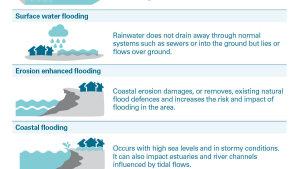
Exhibit 2 -
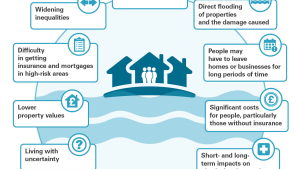
Exhibit 3 -
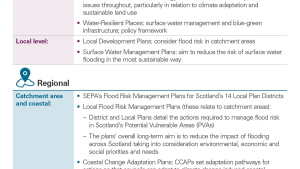
Exhibit 4 -
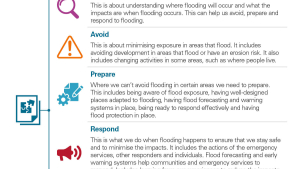
Exhibit 5 -
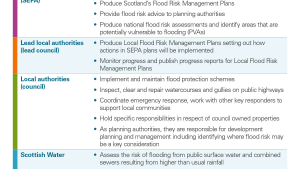
Exhibit 6 -
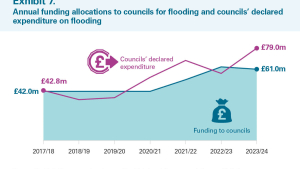
Exhibit 7 -
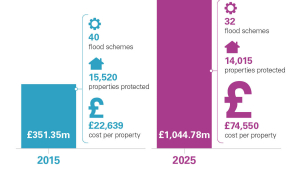
Exhibit 8 -
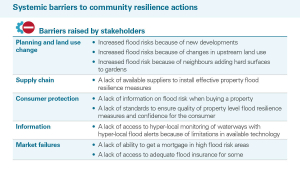
Exhibit 9 -
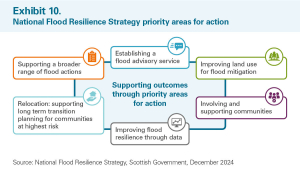
Exhibit 10 -
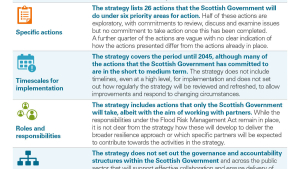
Exhibit 11

Climate change
Visit our Climate change page for more information on our audit work, organisational publications and resources.
